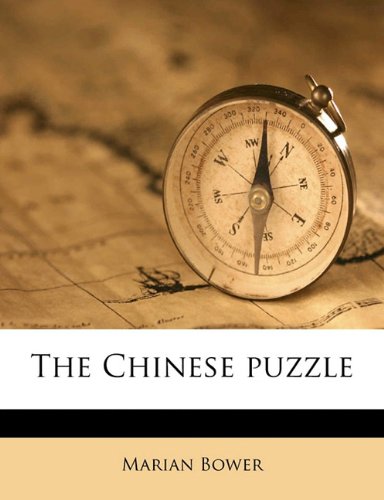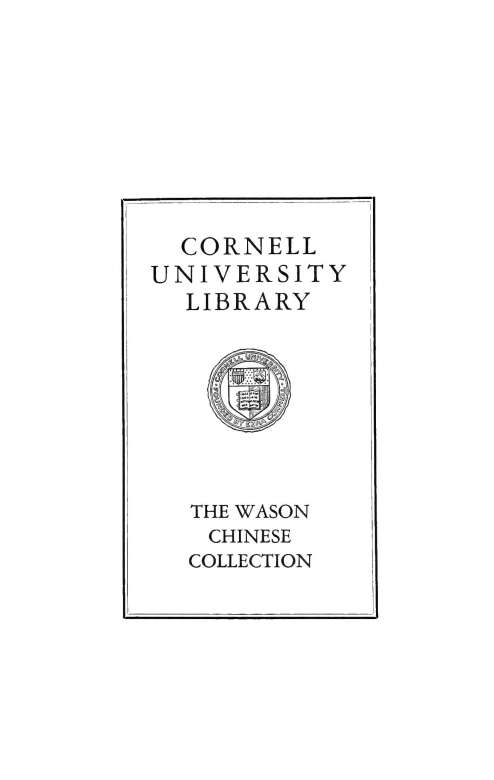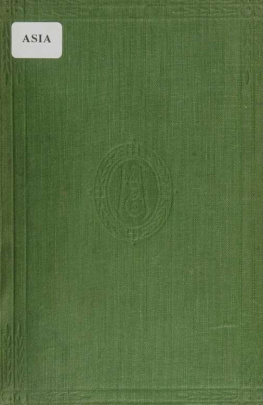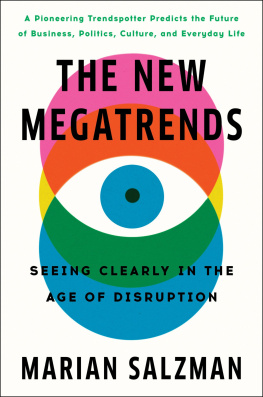Marian Bower - The Chinese puzzle
Here you can read online Marian Bower - The Chinese puzzle full text of the book (entire story) in english for free. Download pdf and epub, get meaning, cover and reviews about this ebook. year: 1919, publisher: Hutchinson, genre: Prose. Description of the work, (preface) as well as reviews are available. Best literature library LitArk.com created for fans of good reading and offers a wide selection of genres:
Romance novel
Science fiction
Adventure
Detective
Science
History
Home and family
Prose
Art
Politics
Computer
Non-fiction
Religion
Business
Children
Humor
Choose a favorite category and find really read worthwhile books. Enjoy immersion in the world of imagination, feel the emotions of the characters or learn something new for yourself, make an fascinating discovery.
- Book:The Chinese puzzle
- Author:
- Publisher:Hutchinson
- Genre:
- Year:1919
- Rating:3 / 5
- Favourites:Add to favourites
- Your mark:
- 60
- 1
- 2
- 3
- 4
- 5
The Chinese puzzle: summary, description and annotation
We offer to read an annotation, description, summary or preface (depends on what the author of the book "The Chinese puzzle" wrote himself). If you haven't found the necessary information about the book — write in the comments, we will try to find it.
The Chinese puzzle — read online for free the complete book (whole text) full work
Below is the text of the book, divided by pages. System saving the place of the last page read, allows you to conveniently read the book "The Chinese puzzle" online for free, without having to search again every time where you left off. Put a bookmark, and you can go to the page where you finished reading at any time.
Font size:
Interval:
Bookmark:








Every man has a chord in his being which vibrates to one particular message sent through the preceptions. With some, it is the sight of a drop of dew on a flower ; with'others, the scent of a rose ; again the glimmer of moonlight on water will make the lip of the hardest soldier quiver. Napoleon, it is said, could never see a woman in white, walking between the trees in a green avenue, without feeling his remarkably steady pulse throb.
Women go less by phenomena than by association. The beauty of even the most glorious sunset is enhanced by proximity ; the memory of a flower is less a thought for its colour than of the hand which offered it. As for Roger, it was just that homely scent of moist earth that set his mind rejoicing now.
The smell carried him out of London to the quaint white house at Zouch de la Haye. It reminded him of all his bo3dsh excitements, of going out to shoot a rabbit, of the tramp down the plough, of the misty October days, of the brown leaves curled up on the spikes of a hedgerow.
Latterly, since he had made up his mind to foUow the same career as his father, and had set himself to understand the little a European may of the Oriental mind, he had been very rarely at Zouch. But he knew exactly how things were there. The next day he proposed to go home. The next evening, if the weather were kind, he and his mother would walk out of the long French windows across the terrace, down the steps into the garden. Lady de la Haye loved flowers. There were whole beds fuU of roses, red roses with a fragrance that scented a whole room, new since he was there. But the border under the Ehzabethan brick wall round the bowling green was quite unchanged, and at night the clumps of white pinks would look like cushionsfor fairies to lay their heads on, just as they had done when he was seven years old, and fairies were as real to him as Fido the retriever.
At this point Roger, coming back to the practical matters of the moment, began to think of what was immediately before him. It was something more important than the mere desire of a man newly returned from distant lands for any amusement which had caused him to promise to put in an appearance at this particular dance. Indeed, so little did the invitation concern him, as an invitation, that, though he recollected the number of the house in Grosvenor Square, the name of his hostess had slipped from his mind.
The- previous day, when he had hurried to see his best friend, Paul Marketel, Paul, rather to his amusement, had mentioned, with a twist about his strong mouth, that he was going to display his big person in this particular ballroom. Roger had started with the idea that he would Uke to go because Paul would be there, and then, as events, especially diplomatic events, have a way of doing, they took an unexpected turn, and Roger found that there would be convenience, as well as pleasure, in thus having an opportunity of seeing Paul, for he wanted to say a word or two to him on a weighty matter, under the disguise of frivohty.
Roger had returned from Pekin in a leisurely fashion. He had spent as much time as he pleased at any place which interested him, and so when he eventually found himself in London, and reported to the Foreign Of&ce, he learned that China had made one of those spasmodic moves which give indications, from time to time, of what she might be capable, should it ever seem good to her to modernise herself, in the Western acceptance of the term.
This particular move was the proposal for a Loan for the purpose of buUding the nucleus of a Chinese Navy. The British Government was approached, and timorous, as usual, about hurting foreign susceptibihties, was incUned to temporise. At this juncture Paul Marketel stepped in. He offered to take up the Loan himself, provided the British Government would participate to the extent of a benevolent interest. The proposal was accepted and it became evident at once that not only speed was necessary to carry through the affeiir, but secrecy as well. The German Intelhgence Service has always been particularly well served in England, and the Wilhelm-strasse immediately got a hint of what was in the wind. The Far East has always been a pressing concern of the German diplomatic mind; its una vowed aim to make the vast Chinese Empire into an exclusively Teutonic sphere of influence Therefore this Navy Loan was doubly disconcerting. First, because Germany resented any display whatever of Chinese initiative, and secondly, because Chinese initiative backed by British support was especially distasteful.
A note was received by the Court of St. James suggesting an International Conference, and Paul knew that the only way to circumvent that move was to oppose it with the Jait accompli of a private Loan, privately arranged. It was at
this point that Roger came in. There were reasons why it was particularly suitable that he should represent the British Government in the matter. He was to play that role as unobtrusively as possible, and with no official standing, but the arrangements for meeting and discussion were left in his hands, and it was his intention to settle these with Paul in as casual a fashion as possible, in the interval between one dance and the next.
He crossed the road before St. George's Hospital, skirting in and out of the buses and traffic congregated there ; and then, against his will, there suddenly came to him the remembrance of the acrid Chinese smell; of that evil odour which every Celestial CityPekin perhaps less than mostseems to gather up and blow in whiffs, in and out, between all the holes and corners of the native houses and their compounds, and then on through those straight streets of the European Settlement which, with their order and regularity, are a perpetual marvel and an equal irritation to the Chinese.
The Far East came to Roger by inheritance. His father. Sir Arthur de la Haye, was so pre-eminently the authority on Celestial matters, that the whole network of British diplomacy in China seemed to hang on his shoulders. England never lends her representatives one ounce of unnecessary strength. They have to impress out of their own personality. If they make bricks without straw when their confreres of Russia, or Germany, are provided with substantial sheaves, then they have done no more than their duty; if they fail, the difficulty of their situation provides no extenuating circumstance. Another man is sent, and then another, until one turns up with such a combination of the essential qualities that he effects marvels as if they were commonplaces.
Sir Arthur de la Haye was such a man. The Chinese not only feared him, but they respected him, jand the respect of a Chinaman means greater things than the casual Westerner is given to supposing. He was even friendly to a limited extent with many of the Chinese officials. One man, Chi Lung, the Mandarin and Viceroy, whom the Dowager Empress had disgraced twice, and twice recalled, because no one else was so acceptable to the Western Powers, made no secret of his friendship and affection for Sir Arthur de la Haye.
Font size:
Interval:
Bookmark:
Similar books «The Chinese puzzle»
Look at similar books to The Chinese puzzle. We have selected literature similar in name and meaning in the hope of providing readers with more options to find new, interesting, not yet read works.
Discussion, reviews of the book The Chinese puzzle and just readers' own opinions. Leave your comments, write what you think about the work, its meaning or the main characters. Specify what exactly you liked and what you didn't like, and why you think so.












